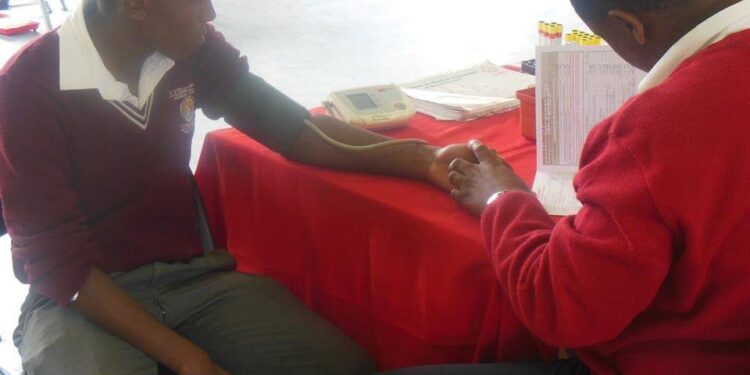By Gareth Stokes
It feels like forever since the National Health Insurance (NHI) Act debacle has featured in an FAnews newsletter, and for good reason: nothing has changed. The African National Congress (ANC) and its Department of Health (DoH) are sticking to their guns that South Africa needs a universal health coverage (UHC) solution regardless of cost or consequence, while everyone else is screaming that the solution is unaffordable and unworkable.
A litany of negative healthcare outcomes
President Cyril Ramaphosa signed the Act into law on 15 May 2024 despite widespread criticism over the affordability of the proposal, the centralisation of funding achieved through its structures, the impact of the Act on private medical schemes members and the broader private healthcare sector and significant shortcomings in the public consultation process, to name a few. And there are plenty of legal challenges loading.
The Board of Healthcare Funders (BHF) were the first to file suit, asking the Gauteng High Court to review the President’s decision to sign the then NHI Bill as far back as 27 May 2024. They were followed by the South African Private Practitioners Forum (SAPPF), which filed separate legal papers relating to the NHI Act in October of the same year. The Court has since decided to consolidate these applications because they cover overlapping legal arguments centred on constitutional concerns and procedural issues.
Others announced their intention to challenge the NHI Act soon after its assent, but remain on the sidelines for now. These include the Democratic Alliance (DA), the Hospital Association of South Africa (HASA), the Private Practitioners Forum (PPF), as distinct from the SAPPF, the SA Medical Association Trade Union (SAMATU) and Solidarity. Their concerns, announced at a joint press conference, spanned the constitutionality of the new law and its workability, among others.
The Health Funders Association (HFA) is the latest to throw their hat in the proverbial ring, announcing on 5 June 2025 that they have launched a legal challenge against the NHI Act.
The NHI Act is not fiscally feasible
As this lengthy introduction shows, the HFA is neither the first to take legal action against the NHI Act, nor will it be the last. “South Africa needs a healthcare system that delivers equitable, quality care to all [and] we fully support that vision,” said Thoneshan Naidoo, CEO of the HFA. “However, in its current form, and without private sector collaboration, the NHI Act is fiscally impossible and operationally unworkable; it threatens the stability of the economy and health system impacting everyone in the country.”
Your writer is stunned by the continued conciliatory tone of public criticism in this matter. Each challenge against the destined-to-fail assimilation of a functioning private medical sector into the cauldron of government healthcare mismanagement has been sweetened with grovelling praise for the state’s good intentions. Nonsense. Government has had most than 30 years to direct one of the biggest line items on South Africa’s annual expense budget towards a public healthcare solution, at close to the highest healthcare-expenditure-to-GDP ratio in Africa. Ironically, this faltering solution already functions as a UHC, just inefficiently.
The media release announcing the HFA’s court action labelled the NHI Act “unaffordable, unworkable and unconstitutional.” Those are three heavy Us that the incumbent Minister of Health will have to answer, assuming he deigns to do so. The release also laid bare the basics of the constitutionality argument, noting that “the Act centralises control of all healthcare financing in a single state-run fund, removing the ability of medical schemes to offer cover for healthcare services reimbursable by the NHI.” I.e. it strips citizens of their right to choose how they access or fund their healthcare.
You cannot tiptoe around affordability
You can debate the merits of a centralised, state-run healthcare fund or its likely outcomes to your heart’s content, but you cannot tiptoe around the affordability issue. The HFA confirmed what FAnews Online and countless other news outlets have said before, namely that “funding the intended benefits in the current NHI framework, as set out by government, would require unprecedented increases in tax, at levels far beyond South Africa’s fiscal capacity.” To make matters worse, “the proposed model offers no guarantee of improved [healthcare]outcomes.”
The media release contained details of the latest private sector-funded attempt to cost the NHI solution, an exercise that government has repeatedly refused to undertake. The association commissioned Genesis Analytics (Genesis), an independent economic consultancy with experience in over 115 countries, to build a financial and economic model to test the viability of NHI under different assumptions. According to the HFA, the Genesis report unequivocally demonstrates that the NHA Act requires unsustainable tax increases while reducing healthcare access for medical scheme members.
In a classic example of myth-busting, the report also showed that South Africa’s medical scheme membership totally diverges from the wealthy, White elite that the Department of Health always contends it to be. Genesis found that more than 68% of members are Black, Indian or Coloured, and up to 83% earn less than R37500 per month. “The proposed NHI would therefore disproportionately impact working-class households who currently rely on medical schemes for quality care,” the HFA wrote.
The taxpayer has been bled dry
As the Minister of Finance recently discovered, it is difficult to squeeze more tax revenue from a struggling taxpayer base. The first version of the country’s 2025 National Budget, which proposed a 2% increase in value-added tax (VAT), was soundly condemned, as was the version two ‘step down’ to 0.5% in each of 2025 and 2026. Version three scrapped VAT altogether but sneaked in a few billion extra via an increase in the fuel levy. The point is taxpayers are pushing back against a VAT change that would have raised just R75 billion over three years.
The Genesis analysis shows that the implementation of the NHI Act is fiscally impossible. Even under the most optimistic assumptions, factoring in as much as 45% in saving from present private sector healthcare cost levels, it will prove impossible for government to raise the necessary funds. The bottom line: “for NHI to fund a level of care equivalent to what medical scheme members currently receive … personal income tax would need to increase by 2.2 times from the current average rate of 21% to an average of 46% of income.” Alternatively, VAT could be hiked from 15% to 36%, a totally unrealistic leap.
An alternative scenario modelled by Genesis considered the pooling of existing private and public healthcare expenditure. If this were implemented, personal income tax would need to increase by 1.5 times; but medical scheme members would face a 43% reduction in the level of healthcare services relative to what they currently enjoy. As the HFA noted, the reality for medical scheme members under this hybrid solution would be “to pay 1.5 times more tax for 43% less healthcare.”
Hitting 9.1 million members where it hurts most
The NHI Act erodes access to healthcare for South Africa’s 9.1 million medical scheme members. “While the healthcare system needs overall improvements, this is unconstitutional as it reduces existing healthcare access for part of our population; we need to aim for a collaborative approach to sustainably address the health system challenges and improve healthcare access for everyone,” the HFA wrote. They added that by removing citizens’ rights to supplement public healthcare provision with private care, the Act “contravenes the state’s obligation in section 27(2) of the Constitution.”










